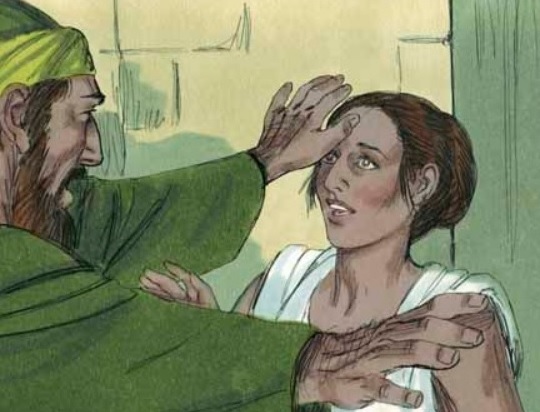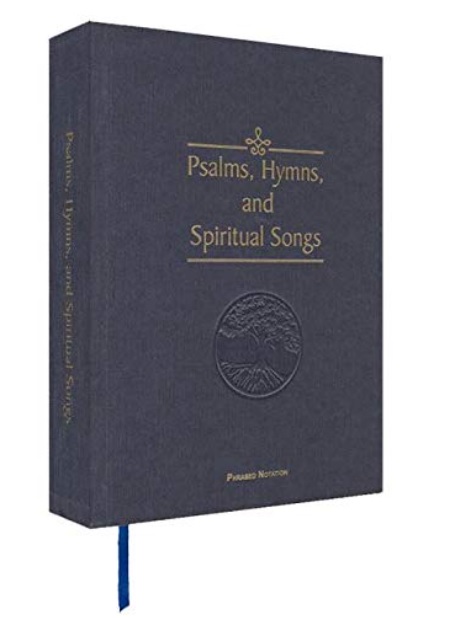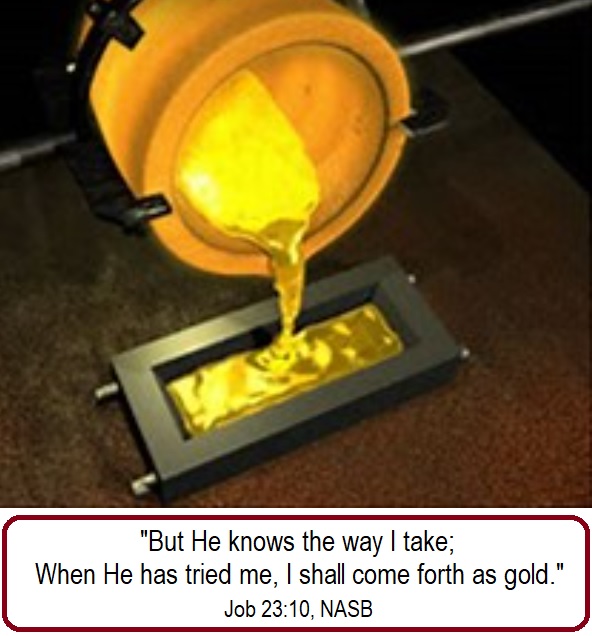“Go therefore and make disciples of all the nations…teaching them to observe all that I commanded you; and lo, I am with you always, even to the end of the age” (Matthew 28:19-20, NASB).
——————–
Contents:
1) Conquering Temptation (Bob Dodson)
2) Christ’s Birth (video sermon, Tom Edwards)
3) News & Notes
——————–

-1-
Conquering Temptation
Bob Dodson
How can we overcome temptation? We do not sin by being tempted — we sin when we yield to the temptation. God’s word provides some guidelines to help us.
Remember God’s word. Use God’s word as a weapon in your spiritual battles with Satan and temptation. “And take the helmet of salvation, and the sword of the Spirit, which is the word of God” (Ephesians 6:17). Each time Satan tempted Jesus in the wilderness, He replied, “IT IS WRITTEN” (Matthew 4:1-11; Luke 4:1-13). David said he hid God’s word in his heart that he might not sin against Him (Psalm 119:11). In the midst of persecution, holding to God’s word sustains us (Psalm 119:153, 157, 176). When tempted to do wrong, reflect on the word and what it says regarding the matter. In order to be able to use the word effectively, we must know what it says.
Avoid temptation. Rather than seeing how close to sin we can get, without going over the proverbial line, we need to run in the opposite direction. “But you, O man of God, flee these things and pursue righteousness, godliness, faith, love, patience, gentleness” (1 Timothy 6:11). “Flee also youthful lusts; but pursue righteousness, faith, love, peace with those who call on the Lord out of a pure heart” (2 Timothy 2:22). Joseph ran from the temptation Potiphar’s wife placed before him (Genesis 39:12). We are obligated to “watch” where we are going (Matthew 26:41). The Proverbs writer warned the young man not to go near the harlot’s door (Proverbs 5:8; 7:25).
Staying clear means not placing ourselves in situations where we will be tempted to violate God’s will. Many times, we sin because we position ourselves to provide opportunities for Satan to tempt us. If you play in Satan’s backyard, according to his rules, you will lose every time.
Pray. Jesus taught His disciples to pray that they would not be led into temptation. “And do not lead us into temptation, but deliver us from the evil one…” (Matthew 6:13). We should pray for strength to overcome life’s trials. Again, Jesus told His disciples, who were sometimes weak, “pray that ye enter not into temptation” (Matthew 26:41). It is interesting that in the context where Paul discussed putting on the whole armor of God to fight against the wiles of the devil, he added: “Praying always with all prayer and supplication in the Spirit, being watchful to this end with all perseverance and supplication for all the saints” (Ephesians 6:18).
Make an honest self-examination. We must consider ourselves, lest we also be tempted. “Brethren, if a man is overtaken in any trespass, you who are spiritual restore such a one in a spirit of gentleness, considering yourself lest you also be tempted… But let each one examine his own work, and then he will have rejoicing in himself alone, and not in another. For each one shall bear his own load” (Galatians 6:1,4). We must constantly examine where we are, and where we are heading. Am I walking in the paths of God or of the world? “Examine yourselves as to whether you are in the faith. Test yourselves. Do you not know yourselves, that Jesus Christ is in you?–unless indeed you are disqualified” (2 Corinthians 13:5). Do I flee temptation, or run right in its face? Could I be guilty of creating my own tempting situations? Each of us must be honest enough to examine our actions to see if we are taking the proper precautions, or blindly heading into danger by using human, rather than divine, wisdom. “Lest Satan should take advantage of us; for we are not ignorant of his devices” (2 Corinthians 2:11). This takes self-discipline and the willingness to look at things as they really are–not how we wish to believe they are. Each of us must take personal examination seriously and perform it daily.
Understand how the tempter works. Any military leader can tell you that knowing how your enemy operates helps with your effort to defeat him. Satan has three avenues through which he appeals to us. “Do not love the world or the things in the world. If anyone loves the world, the love of the Father is not in him. For all that is in the world–the lust of the flesh, the lust of the eyes, and the pride of life–is not of the Father but is of the world. And the world is passing away, and the lust of it; but he who does the will of God abides forever” (1 John 2:15-17). Satan attacks us at what he knows to be our weakest points. Don’t underestimate this adversary! He is sly, cunning, crafty, and has in mind only one goal–to destroy our souls.
Choose your companions wisely. Obviously, our friends have a great deal of influence–either good or bad–on us. Godly, moral companions are a good influence because they encourage us to do good things. On the other hand, evil and ungodly friends are a bad influence, because they seek to lead us away from God. In the Scriptures, Paul gave a stern warning about this very truth. “Do not be deceived: Evil company corrupts good habits. Awake to righteousness, and do not sin; for some do not have the knowledge of God. I speak this to your shame” (1 Corinthians 15:33-34). None of us is so strong that associating with sin cannot affect us. Many young people are lost to the world simply because they got with the wrong crowd. Influence is a powerful force, when it is used for good. The reverse is also true.
Remember sin’s consequences. It seems that Joseph was thinking about this very fact when he resisted sin in his life. “But he refused and said to his master’s wife, ‘Look, my master does not know what is with me in the house, and he has committed all that he has to my hand. There is no one greater in this house than I, nor has he kept back anything from me but you, because you are his wife. How then can I do this great wickedness, and sin against God?’” (Genesis 39:8,9). Sadly, many learn too late that the pleasures of sin last only for a season–they do not endure. “Choosing rather to suffer affliction with the people of God than to enjoy the passing pleasures of sin” (Hebrews 11:25). Sin’s wages never change. “For the wages of sin is death, but the gift of God is eternal life in Christ Jesus our Lord” (Romans 6:23). If we die in sin, we’ve earned eternal separation from God (Revelation 21:8). Is it worth the risk?
Look for a way of escape. Temptation is like being in a room that has more than one door–there is a way to escape. God has promised a means of escape for every temptation known to man. “No temptation has overtaken you except such as is common to man; but God is faithful, who will not allow you to be tempted beyond what you are able, but with the temptation will also make the way of escape, that you may be able to bear it” (1 Corinthians 10:13). Sometimes we ignore the escape route and yield to the temptation. Sometimes the way to escape is by not putting yourself in a susceptible position. Look for the way to do the right thing–then do it!
Conquering makes us better. If we overcome enticement and bear our trials, we become stronger and are better prepared for the next trial Satan places in our way. Each trial or temptation can be either a stumbling block or a stepping stone toward Christ-like maturity. Each time we yield, we become weaker. Each time we resist, we grow stronger. “In this you greatly rejoice, though now for a little while, if need be, you have been grieved by various trials, that the genuineness of your faith, being much more precious than gold that perishes, though it is tested by fire, may be found to praise, honor, and glory at the revelation of Jesus Christ, whom having not seen you love. Though now you do not see Him, yet believing, you rejoice with joy inexpressible and full of glory, receiving the end of your faith–the salvation of your souls” (1 Peter 1:6-9). (edited–KMG)
— Via Articles from the Knollwood church of Christ, December 2001
——————–
It is said of Jesus: “For in that He Himself has suffered, being tempted, He is able to aid those who are tempted” (Hebrews 2:18, NASB).
——————–
-2-
Christ’s Birth
Tom Edwards
For the video sermon with the above title, just click on the following link while on the Internet:
https://thomastedwards.com/wordpress/Christ’s_Birth.mp4
——————–
-3-
News & Notes
Let us be praying that God will bring comfort to all the family and friends of Ron Montero (Bud’s oldest brother) who passed away Wednesday evening.
Danielle Bartlett is now in the hospital with Covid-19 and pneumonia, but she says it is a very mild case. So she might soon be going home.
Danny & Jan Barlett, along with Doug and Marie Pennock and Mikaela, all have the virus. Danny & Jan have many symptoms, but nothing serious right now. Doug and Marie are over the worst of it and getting better, and Mikaela has it only slightly and with a cough.
Though confined to rehab, Tammy Griffey appears to be in good spirits. She still has a few more weeks to go and 5 times a week for therapy. UPDATE: Richard & Tammy Griffey both now have the coronavirus. So far, it is like just a cold for Richard, but worse for Tammy. She can now no longer have visitors.
Due to a recent fall, Jim Lively is again having therapists come to his home a couple times a week.
After having now received her referrals, Kayla Williams is scheduled for a doctor’s appointment the second week of January, to be followed by another appointment that she has not yet been given the date for.
I’m glad to say that the fusion Ronnie Davis had in his back about 3 weeks ago is doing some good! But, lately, he and his wife Melotine have both been ill.
Let us also be remembering Rick Cuthbertson, Deborah Medlock, Rex Hadley, Vivian Foster, and Kim Rowell in our prayers.
——————–
The Steps That Lead to Eternal Salvation
1) Hear the gospel — for that is how faith comes (Rom. 10:17; John 20:30-31).
2) Believe in the deity of Jesus Christ, the Son of God (John 8:24; John 3:18).
3) Repent of sins. For every accountable person has sinned (Romans 3:23; Romans 3:10), which causes one to be spiritually dead (Ephesians 2:1) and separated from God (Isaiah 59:1-2; Romans 6:23). Therefore, repentance of sin is necessary (Luke 13:5; Acts 17:30). For whether the sin seems great or small, there will still be the same penalty for either (Matt. 12:36-37; 2 Cor. 5:10) — and even for a lie (Rev. 21:8).
4) Confess faith in Christ (Rom. 10:9-10; Acts 8:36-38).
5) Be baptized in water for the remission of sins (Mark 16:16; Acts 2:38; 22:16; 1 Pet. 3:21). This is the final step that puts one into Christ (Gal. 3:26-27). For from that baptism, one is then raised as a new creature (2 Cor. 5:17), having all sins forgiven and beginning a new life as a Christian (Rom. 6:3-4). For the one being baptized does so “through faith in the working of God” (Col. 2:12). In other words, believing that God will keep His word and forgive after one submits to these necessary steps. And now as a Christian, we then need to…
6) Continue in the faith by living for the Lord; for, if not, salvation can be lost (Matt. 24:13; Heb. 10:36-39; Rev. 2:10; 2 Pet. 2:20-22).
——————–
Tebeau Street
CHURCH OF CHRIST
1402 Tebeau Street, Waycross, GA 31501
Sunday: 9 a.m. Bible Class and 10 a.m. Worship Service.
We also have a Song Service at 5 p.m. for every first Sunday of the month.
evangelist/editor: Tom Edwards (912) 281-9917
Tom@ThomasTEdwards.com
https://thomastedwards.com/go/all.htm/ (This is a link to the older version of the Gospel Observer website, but with bulletins going back to March 4, 1990.)


















